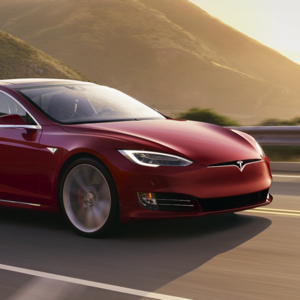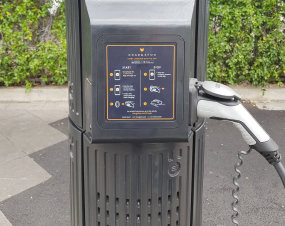Here it is, folks. The JET Charge Journal has covered electric bikes, roadtrains, excavators, snowmobiles, dump trucks, planes, jet skis, and unicycles. It’s taken a while, but we’ve finally landed at tractors.
Plowing ahead
It’s early days for every industry, but agriculture is definitely at the back of the pack as far as electrification goes.
Unfortunately commercial agriculture is particularly reliant on vehicles with high range and fast refuelling. Peak harvest periods can involve 12-to-14 hour shifts on a single machine; this has been incompatible with battery technology for a long time and kept the industry firmly in the grip of Big Diesel.
But not forever. Japanese machinery manufacturer Kubota revealed their vision for the future of agriculture last month: the ‘X Cross’ fully autonomous and all-electric tractor.
As menacing as it looks, the X Cross represents an extremely interesting model for the future of farming. Autonomy offers faster, more efficient harvests and a significant reduction in labour. Electric power also removes a lot of the maintenance and diesel costs that make tractors so expensive to run.
Meanwhile, agricultural heavyweight John Deere is reportedly working on their own autonomous electric tractor. They came out early with their 2017 reveal of the SESAM — Sustainable Energy Supply for Agricultural Machinery — and again last year with a prototype of their own autonomous e-tractor. But this time without batteries: The GridCON uses a reeled cable to keep running. Not quite what we were hoping for.
But tank treads and full autonomy aren’t the only path forward for all-electric agriculture.
German machinery manufacturer Fendt have been making their own electric tractor — the e100 Vario — since 2018. They claim it can deliver up to 5 hours under ‘normal working conditions’ thanks to a 100 kWh battery.

Clearing the field
It’s good to see electric tractors being developed but the path forward is far from clear.
Battery tech needs to improve significantly before many farmers consider making the switch; reliability over long shifts is crucial for many farms’ success in a fast-paced harvest season.
And John Deere’s cord system is far from practical for many agricultural applications — it’s hard to imagine many Australian fields getting consistent power access.
A lot of the benefits EVs bring to passenger vehicles are less relevant for agriculture. Noise isn’t a concern in deserted fields and environmental benefits are undervalued by many cash-strapped farmers.
Reaping and sowing
But that’s not to say there aren’t advantages to bringing electric tech to agricultural machinery. High weight, which is seen as a liability for regular EVs, is often necessary for tractor design. Many combustion machines have huge iron plates added specifically to bring up the weight and increase traction. With hundreds of kilograms of batteries onboard, this might not be necessary.

On the same note, electric motors’ 100%-off-the-line torque is extremely useful for agricultural work. Even the most powerful diesel engines can’t hope to match them on that front, and it’s particularly relevant for tractors which consistently work at low speed.
So where are electric tractors going next? Will the advantages outweigh the obstacles? Let us know and check back to the JET Charge journal for more on every kind of electric mobility.



